Covid-19: 5 signs that vaccines are already 'mandatory' in Brazil
- Ricardo Senra - @ricksenra
- BBC News Brasil in London
Vaccination became one of the axes of discord between the governor of SP João Doria and president Bolsonaro; mentions of compulsoryness, however, seem more guided by politics than by science
The arm wrestling between President Jair Bolsonaro and the governor of São Paulo, João Doria, over the supposed mandatory vaccination against the coronavirus is "inopportune" and "counterproductive".
Those who say are scientists heard by BBC News Brasil in Brazil and abroad. They point out that, for years, Brazilians and citizens around the world have lived in a peaceful way with rules that make vaccination up to date as a condition for certain activities - and this goes far from violent impositions, political disputes or conspiracy theories.
"When it comes to mandatory vaccination, most people imagine a scene with a health worker entering your home with a syringe in hand and forcibly vaccinating you, against your will," says researcher Natalia Pasternak, PhD in microbiology and a member of the Halo Team, a UN initiative that brings together scientists from around the world to increase the reach of science.
"It does not exist and it will not happen. This is not how vaccines are treated in democratic countries."
Doria and Bolsonaro are possible rivals in the 2022 presidential elections.
"The vaccine is never mandatory in the sense that no one is vaccinated against their will, but there are restrictions on civilian life that you can suffer if you cannot produce a vaccination certificate," explains Pasternak.
"These restrictions on civilian life are conditional on a statement that you are contributing to collective health measures, such as the vaccine."
See more about how restrictions of this type already happen in practice in Brazil below.
Conspiracy theories
The consensus among scientists is that, more than talking about mandatory or not, the moment calls for clear information campaigns guided mainly by transparency so that people understand the importance of vaccination as the most important instrument to change the destructive trajectory of the coronavirus - which has killed more than 1.6 million people worldwide.
"The vaccine is never mandatory in the sense that nobody is vaccinated against their will, but there are restrictions on civil life that you can suffer if you cannot produce a vaccination certificate", explains the expert.
After the United States and India, Brazil is the third country with the most deaths on the planet - 181 thousand, until Monday (14).
For American chemist Derek Lowe, a specialist in drug development and author of a blog in the journal Science , the idea of an "imposition of the type 'you have to take the dose'" could bury the possibility of raising awareness for the population to get vaccinated .
"I fear that an order to 'vaccinate, whether you want it or not' would convince many people that the conspiracy theories they may have heard of are really true," Lowe tells BBC News Brazil.
"But if people voluntarily adhere, receive the vaccine and do not develop negative effects, such as being tracked by secret mind control satellites of Bill Gates and George Soros, or whatever it is, the doubts will be overcome", he quips.
The chemist sums up his point: "If the approach is imposing, there will be zero chance of persuasion".
The ideas that Sars-CoV-2 was deliberately created in a laboratory by the pharmaceutical industry with an eye on profit from the sale of a vaccine, or that it was spread by the governments of China or the United States, or that it reacts to famous billionaires , or that is disseminated through the 5G signal, are accepted by a significant number of people worldwide, according to a recent global survey.
None of them has anything to do with reality - and the lack of information is the main way for the theses to spread.
The perspective of those interviewed by BBC News Brasil is defended by the World Health Organization.
In the report, the organization defended dialogue and information so that the population voluntarily embraces vaccination.
"To achieve high adherence to vaccines against Covid-19, countries must prioritize transparent communication and community involvement to build trust and increase public acceptance. Countries must also ensure that the vaccine is free and easily accessible, provided through quality services. With these and other efforts, it is possible that voluntary adoption of the vaccine will be adequate to start controlling the pandemic. "
Regarding the idea of mandatory vaccination, WHO told the report that "in situations where voluntary adherence to the vaccine is inadequate and transmission rates for Covid-19 remain unacceptably high, it is possible that some countries may consider introducing mandatory programs in the country. interest in saving lives ".
"Extreme care must be taken with the implementation of such mandates or requirements, including the use of any penalties or fines, as they can reinforce health and social inequalities."
"I want to reinforce public confidence that the vaccine is safe," said nurse Sandra Lindsay, the first vaccine against covid-19 in the United States.
In practice, vaccines in Brazil are already ' mandatory '
The scientist Natalia Pasternak recalls, however, that the obligation or not of vaccination has not been questioned in the recent history of Brazil - where vaccines are applied in a wide, free and coordinated way since the implementation of the National Vaccination Plan, in the 1970s .
"People get vaccinated because the vaccine is their right, because it is free at the health center and to protect their families," says the scientist.
"The Brazilian always saw vaccination as a right and does not stop to think about whether it was mandatory or not. That was never relevant."
For Pasternak, this discussion "only increases the mistrust that people already have about the covid vaccine, because it is a process that they have never followed before"
"If you are going to discuss mandatory, you have to discuss clarifying that mandatory are civil restrictions, and at most civil restrictions, it is not vaccination by force or coercing anyone," he says.
"When talking about mandatory, those who are used to vaccine legislation are thinking about it. And the population, who are unaccustomed, when they hear mandatory, think 'they will vaccinate me by force'."
But what are the "civil restrictions" that experts like the Brazilian refer to?
Regardless of what happens to the coronavirus vaccine, we Brazilians have lived with them for decades in at least five situations. Check it out below.
Schools
In several Brazilian states and cities, anyone who wants to enroll children in public schools needs to show up to date vaccination books.
The obligation is determined by state laws in places like Paraná, Mato Grosso do Sul, Goiás, Pernambuco, Paraíba, Roraima and Acre. The rules vary by region.
More recently, in July 2020, the State of São Paulo passed a law that imposes the need for up-to-date vaccination for students enrolled in early childhood education, elementary school and high school in the state public system.
The measure is an attempt to reverse the fall in vaccination rates - which are plummeting more rapidly in Brazil compared to the rest of the world.
Public tenders
For WHO, mandatory vaccination programs with a "purpose to save lives" should be conducted with "extreme care"
The need to present a vaccination booklet is also an old one known to concurseiros.
It is yet another example of social restrictions imposed by vaccines - or mandatory - in the case of those who want to run for public office in Brazil.
Rules on tender documentation also vary from state to state. In the vast majority of Brazilian states, certificates proving that candidates have received vaccines such as tetanus and hepatitis B vaccines are necessary requirements for admission.
The same goes for federal public tenders, such as the Public Prosecutor's Office or the Federal Police.
In many cases, contests also require proof of vaccination for the children of applicants up to 5 years of age.
The contests are another example of how mandatory vaccines work in practice in Brazil. Nobody is obliged to compulsorily take these vaccines - but the lack of them, in this case, prevents the person from taking up a post after a competition.
Family Allowance
According to the special secretariat for social development, of the Ministry of Citizenship, responsible for income distribution programs such as Bolsa Família, up-to-date vaccination is a "necessary condition" so that people who meet the selection criteria can receive the benefit.
"In order to correctly comply with Bolsa Família's health conditionality, those responsible must take children under the age of seven to receive the doses recommended by health teams and to weigh, measure and monitor growth and development", says the folder , on your website.
"Pregnant women, on the other hand, must do prenatal care and go to consultations at the Health Unit."
Instituto Butantan is responsible for the production of a significant part of the vaccines distributed by the National Immunization Program
Military enlistment
Anyone who wants to enlist in the Army also needs to be up to date on vaccination, as determined by the federal government.
In an ordinance published in November, the Ministry of Defense determined that vaccination should be mandatory for all active military personnel.
After the merger, members of the Army, Navy and Air Force have up to six months to prove that they have taken their vaccines.
International travel
The yellow fever vaccine is the great global example of how the "mandatory" vaccine can be translated into practice.
To enter dozens of countries, travelers from various parts of the world, including Brazil, need to present an international vaccination certificate (CIPV) that proves that they have had the vaccine against the disease.
The WHO recommendation is that travelers get the vaccine at least 10 days before boarding.
The most recent WHO list includes 127 countries that require vaccination against yellow fever - from Afghanistan to Zimbabwe.
The dispute in Brazil
On November 26, Attorney General Augusto Aras said he issued an opinion to the Federal Supreme Court on the issue.
In the evaluation of the PGR, mandatory vaccination is supported by the Constitution in Brazil and its application, if necessary, must be determined at the federal level by the Ministry of Health.
"The provision of mandatory vaccination is valid as a possible measure to be adopted by the Public Power to face the covid-19 epidemic, if defined as a way to better realize the fundamental right to health, respecting legal limitations", wrote the PGR.
Still according to him, if there is evidence of incapacity or lack of action by the federal government on the topic, "may the member states establish the mandatory immunization as a way of better realizing the fundamental right to health".
Recent comments in defense of spontaneous vaccination have been used by supporters of the president as the organ's supposed support for Bolsonarist theses against compulsory vaccination.
The president himself commented on the case, he told supporters at the entrance to the Palácio da Alvorada, on the morning of the 8th. "Finally, WHO finally got it right, right?"
In its commentary to BBC News Brasil, WHO said it "takes a neutral position on the issue of immunization in general" and that "the comments of our experts during the virtual press conference refer specifically to vaccines for Covid-19".
Hope vs. scarcity
The agency also told the report that vaccines are "good news" and "give us hope".
"In the current circumstances, most people are eager to have vaccines available against Covid-19 and to continue vaccination, so mandatory is not the direction to go."
But WHO recalled that initially the supply of vaccines against covid-19 will be scarce.
"WHO insists on making them available and accessible to priority populations and ensuring that these groups have the information they need to make an informed choice."
An estimate of the People's Vaccine Alliance coalition, a group that brings together organizations such as Oxfam, Amnesty International and Global Justice Now) points out that almost 70 low-income countries will only be able to vaccinate 1 in 10 of their citizens .
The group predicts a vaccination deficit in these countries, since most of the doses are being purchased in high volume by rich countries.
The coalition points out that high-income countries have bought enough doses to vaccinate their entire populations three times, if all vaccines are in fact approved for use.
Different initiatives in defense of a homogeneous distribution of covid-19 vaccines have been announced around the world. The commitment known as Covax has managed to guarantee 700 million doses of vaccines to be distributed in 92 low-income signatory countries.
However, the group points out, at least 67 countries must have sufficient doses for only 10% of their population. They are all low-income nations in Asia and Africa - no Latin American country is on the list.
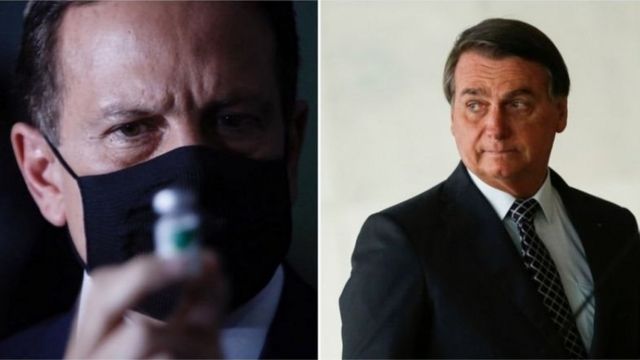
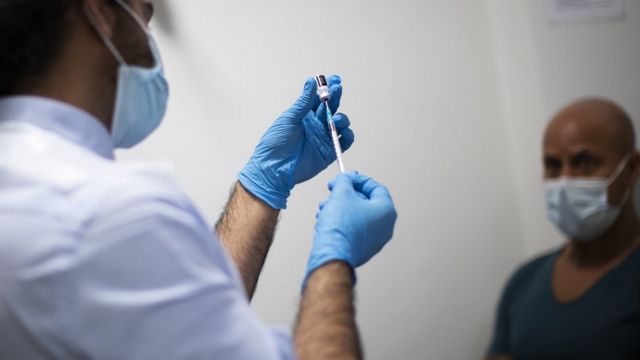
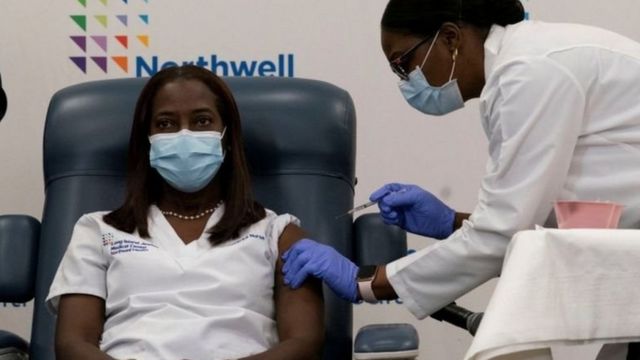
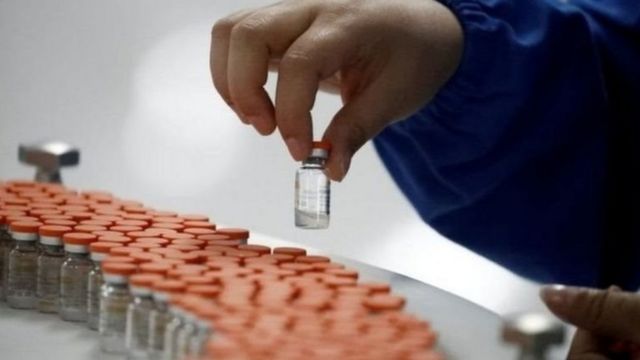
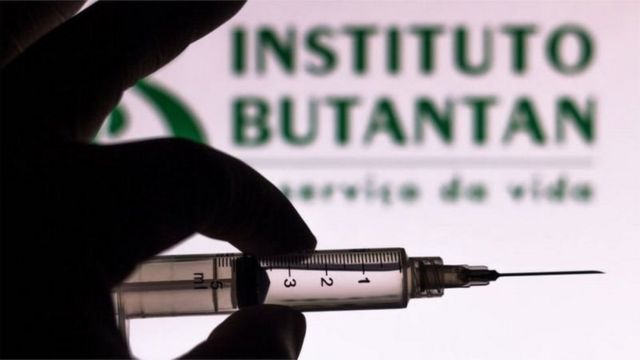

No comments:
Post a Comment